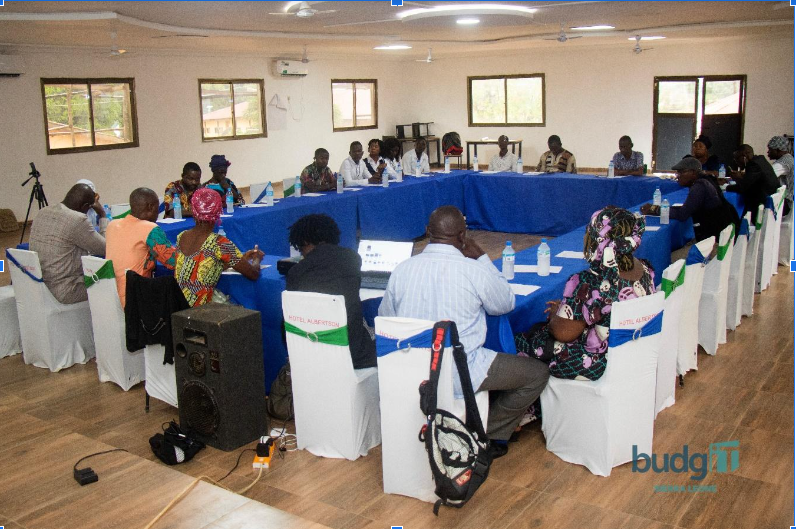After ten years of civil war, which lasted from 1991 to 2002, and the devastating effects of the Ebola outbreak in 2014, Sierra Leone has struggled to recover socially and economically, especially in the health sector. The severe underfunding of healthcare was demonstrated by the 2020 COVID-19 pandemic outbreak, which affected Sierra Leone as well as the rest of the world. In order to ensure proper accountability and transparency of the funds allocated, given, and spent to combat COVID-19 as well as to stoke public discourse, BudgIT Sierra Leone launched its CTAP Phase I project. Makeni is one of the regions with the highest recorded number of affected people and the lowest level of government intervention during COVID-19, according to research and the human angle story interview conducted in CTAP phase I.
BudgIT Sierra Leone held a town hall meeting in Makeni on June 6, 2022, to discuss issues with accountability in the health sector and possible solutions. The event was attended by citizens (students, businesspeople, and women), medical specialists, ambassadors from civil society organizations, tribal leaders, and government employees. The meeting’s recommendations will be gathered and delivered to the OGP for consideration in the upcoming National Action Plan (NAP). One of our goals for the CTAP Phase II initiative is to incorporate accountability for the health sector into the NAP.
Alhassan Sesay (Country Lead, BudgIT Sierra Leone), who opened the meeting, reaffirmed the purpose of the engagement and urged participants to contribute effectively to the discussion. “We are here today to hear from you all about the reforms you would like to see in the health system,” he concluded.
Mr. David Biandoma (OGP Northern Regional Coordinator) stated in his statement that the OGP was established in 2013 to look into government reform programmes to ensure that government processes are transparent and accountable, as well as to make information accessible to citizens. He urges CSOs and participants to be honest and fair in their discussions and recommendations that will be submitted to the OGP steering group. In his last remarks, he assured that OGP would review and use the resolutions from the meeting to ensure health accountability inclusion in OGP National Action Plan”.
Mr Luseni Fofana (Program Officer, Ministry of Justice) “commended BudgIT Sierra Leone for the excellent work they have been doing and encouraged other CSOs and participants to take this opportunity to discuss the future of the health sector. He concluded by advising citizens to be vigilant in exposing corrupt practices and injustices prevalent in the government’s health and other sectors because national progress depends on good health.”
Ministry of Justice Representative, Mr. Luseni addressing
CSOs and attendees from all walks of life also raised the following issues relating to the health sector during the engagement:
Shortage of medicine and medical equipment: Citizens claim they no longer have faith in the healthcare system as they frequently encounter a shortage of the drugs and equipment that are supposed to be accessible when they need treatment in the primary healthcare centre. But they are forced to rely on private hospitals and pharmacies.
Increase in drug peddlers and smugglers: Citizens say the number of drug dealers and smugglers is rising, which is scary and concerning because they offer drugs and other chemicals to minors, which could result in a rise in young addicts. Therefore, the pharmacy board and ministry must establish an effective system to stop the sale of pharmaceutical products by unlicensed individuals.
Poor Waste Management: CSOs and attendees also emphasize the issue of poor waste management in the city as it leads to increased risks of the public contracting diseases.
Lack of access to information: CSOs and attendees express concern about the District Health Medical Team’s (DHMT) failure to give adequate public information about how funds and medical supplies are used in the free healthcare programme.
CSOs and participants centered their discussions on the above issues as they described how they and many more had permeated the fabric of the health sector, leaving it susceptible to bribery and corruption and undermining the proper procedures and practices of accountability and transparency.
